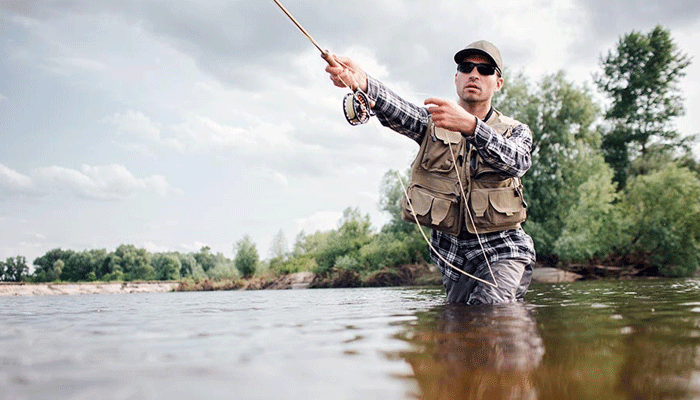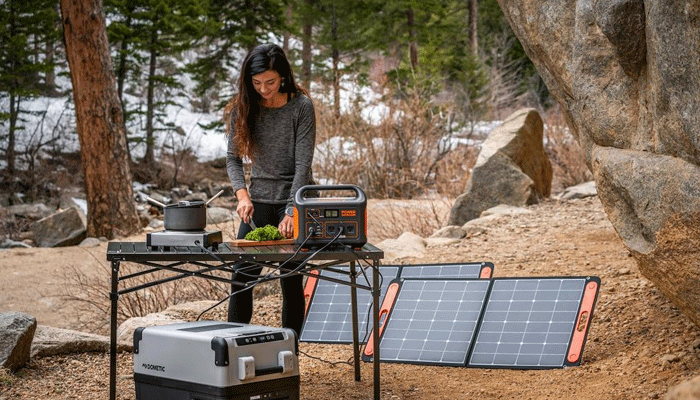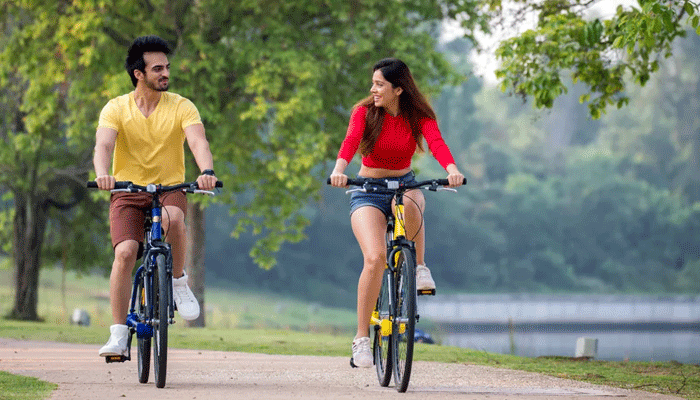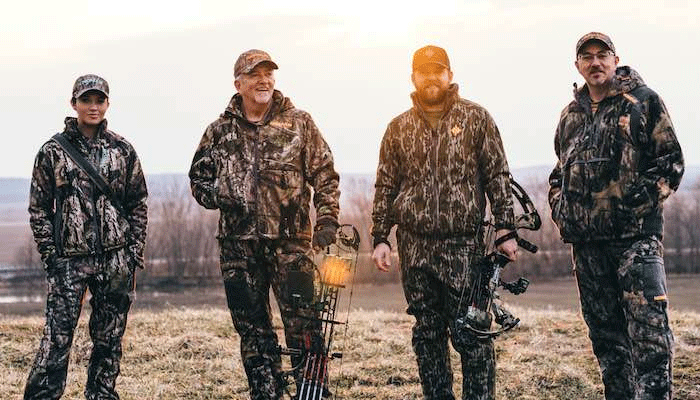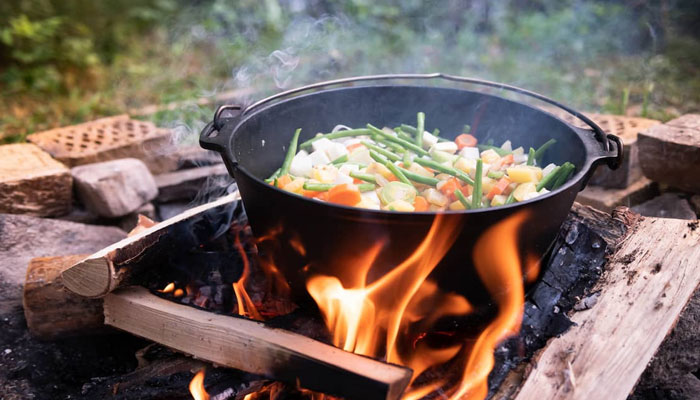
Camping inspires a mean appetite, whether you’re gunning hard on the trails or taking a stroll through scenic corridors. From cowboy beans and beef kebabs to barbecue hot dogs and campfire mac and cheese, these camping recipes will satisfy even the heartiest campers!
Milk is more than a breakfast staple; it makes campsite meals more substantial. It moistens biscuits, tops bread, and adds a creamy element to cocoa.
Beef Jerky
Salty and satisfying, beef jerky is an ideal camp snack. It’s high in protein and low in fat.
Tomatoes add a pop of color and flavor to campsite meals, whether large chunks roasting on the grill or processed into sauce for pasta or spaghetti.
Chips and dip go hand in hand at camping, and a homemade jar of salad dressing elevates even the most simple meal.
Potatoes
A versatile, filling food, potatoes can be grilled in skewers, roasted in foil packets, or boiled for pasta and soup. They’re great for camping as a carbohydrate and a source of energy for hikers.
Bake large potatoes at the campsite and serve with deli meats, cheese, veggies, sour cream, and anything else you fancy. Kids will love building their pizzas on pita bread with these toppings. Sweeter versions include banana boats (slice a banana down the middle, then top with marshmallows, Nutella, granola, and strawberries). Bake in foil in the campfire for a delicious dessert.
Tortillas
Tortillas and wraps open up a wide range of backcountry meal possibilities. They are a great choice because they don’t spoil as easily as bread and they can be paired with almost any savory flavor.
Use peanut butter as the “glue” for your favorite stuffed tortilla recipe and add in a mix of dried fruit and nuts for a healthy breakfast, lunch, or dinner. Also, consider bringing freeze-dried guacamole powder to make a quick and easy Mexican meal at camp. Or try grilled chicken skewers with tzatziki sauce.
S’mores
Whether roasted on a stick in front of the campfire or sandwiched between two graham crackers and melted chocolate, marshmallows are an essential camping food item. They make for a delicious dessert and are a great source of energy for your hiking adventures.
Ketchup, mustard, mayonnaise, and other condiments should also be part of your camping food supply. These items can be used to dress up salads, add flavor to grilled meats and fish, or create a dip for a snack. They’re versatile and easy to pack.
Chocolate
Chocolate is a must-have camping food for both adults and kids. It’s an easy snack to pack and makes for a fun dessert while camping. Adding marshmallows and graham crackers will create s’mores, a classic campfire treat.
Milk is an essential camping food because it can fill so many roles. It can be used for breakfasts like pancakes or French toast and it can be used in hot cocoa at the end of the day. It can also be used as a salad dressing for added flavor.
Nuts & Seeds
Nuts and seeds are great hiking foods because they offer a mix of carbohydrates, protein, and fat. They’re also lightweight and provide a consistent energy source.
They’re also easy to carry, and “make the perfect snack to have on hand while camping,” says Hoerr. Enjoy them on a sandwich or make a crunchy trail mix to keep you going all day long.
Rice is another great camping food because it can go from a boil-in-the-bag pouch to a plastic plate. Try it with a bean salad for lunch, or add canned sardines to make an easy foil packet dinner.
Cereal
Cereal is a great breakfast choice that can also double as an afternoon snack. Use a metal tiffin with separate compartments for easy portioning so that each person can have their bowl of cereal.
Tinned fish like sardines is another great option for camping. It can be a tasty filling on sourdough toast for breakfast, wrapped with beans and veggies in a walking taco, or used to make Chinese-style egg fried rice.
Spreads are a great addition to any meal and can help to add a bit of flavor to otherwise bland meals. Try bringing jam, peanut butter, or both to eat on toast or with porridge.
Sour Cream & Vinegar
The best camping foods are those that are versatile and easy to prepare. Having ingredients like one skillet meal on hand allows you to cook up delicious campfire dishes that can feed the whole group or just yourself.
Beans are a go-to camping food that can serve as the star of a burrito or fill out a hearty chili. They also add protein to any meal and are a good source of carbs that provide fuel for hiking or other outdoor activities.
Canned sardines are a quick and nutritious addition to any pasta dish, or tinned fish can be topped with a zesty lemon sauce and served on sourdough toast for breakfast.
Trail Mix
A favorite of hikers and campers, trail mix is a choose-your-own-adventure snack. It’s lightweight, and portable and provides a range of nutrients, from carbohydrates for energy to protein and healthy fats.
Since fresh food can’t last long on a camping trip, plan with a few cupboard staples that don’t require refrigeration. For example, this grilled muffuletta is an easy meal that will get better as it sits and can be made in a single skillet. Also, try these simple banana boats. These tasty treats are sure to please the whole family.
Garlic
A staple of any camp kitchen, garlic helps add flavor to whatever dish is cooking on the grill or over the fire. It also makes a tasty snack when rubbed on a piece of fresh bread or tossed in a salad.
Camping doesn’t have to mean a week of reheating dehydrated meals. With a few basic ingredients, you can whip up tasty meals for a romantic couple or a family of hungry campers. These great camping recipes will keep everyone happy and energized on your next adventure outdoors!
What snacks should I take?
Snacking is an integral part of camping and it can help energize the body for outdoor activities, like hiking. It can also be a fun way to get together with friends and family around the campfire. Choosing healthy and crowd-pleasing snacks is important, as it will give everyone the energy and stamina they need to enjoy their camping experience.
Individually-packaged snacks are ideal for camping since they take up less room in your bag or pack and they are easy to eat on the go. Try granola bars that are packed with a mix of protein and carbs, such as peanut butter or chocolate, to help fuel your body.
Another great option is a trail mix that is packed with nuts, seeds, and dried fruit. This snack provides a lot of nutrition and will keep you full for hours. You can make your trail mix or purchase a ready-made one at the grocery store.
For a savory option, try a jar of olives. These are easy to eat on the go and they have a nice crunch that will help satisfy your cravings. They are a great alternative to beef jerky, which is another classic camping snack.
It doesn’t get much easier than chips and dip when it comes to camping snacks. You can pick up a pre-made dip at the store or you can make your own ahead of time and pack it in a jar for the trip. For added savings on camping gear, consider using a Sport & Outdoor Coupon Code.
What is considered camping food?
The term camping food describes foods that are packed and/or prepared for campers, backpackers, and other outdoors enthusiasts. The foods are characterized by their portability, low weight, and ability to be stored and cooked without refrigeration. Since campers and hikers travel long distances, their meals require high levels of energy and nutrition, so the foods are often freeze-dried, dehydrated, or precooked to allow them to remain shelf-stable for extended periods.
The main components of camping food include simple, easy-to-prepare items like peanut butter and jelly, bread, granola bars, chips, hummus and other dips, hot dogs, and canned chili and soup. Fruits that can be easily sliced and consumed, such as apples, bananas, clementines, and watermelon, are also ideal camping foods. Potatoes, either scrubbed, diced, or baked before the trip, are another classic campground meal staple. Baked potatoes provide a steaming blank slate onto which hungry campers can paint a canvas of toppings, from melted cheese and shredded chicken to refried beans and salsa.
Milk, both dairy and non-dairy, is a must-have for a camp kitchen. Boxed, shelf-stable milk (preferably with a screw-on lid) is convenient because it can be added to soups and stews, scrambled eggs, pancake batter, and, of course, the all-important cup of hot cocoa at the end of a day of hiking and camping.
Is it OK to cook in a tent?
Many people are hesitant to cook in their tents because of the fear of a fire ruining their entire trip or of carbon monoxide poisoning. However, with proper ventilation, it is safe to cook in a tent.
Reconnecting with nature and enjoying the outdoors can be achieved through camping. It helps to increase the production of serotonin, which is a feel-good hormone that boosts mood and reduces stress levels. It also provides a chance to escape from the hustle and bustle of daily life and spend time with friends and family.
One of the most important things to remember when cooking in a tent is to avoid attracting wildlife by not leaving raw meats or fish in the open. Animals have a keen sense of smell and can pick up the scent of these raw foods from a distance. To avoid this, it is recommended to bring processed and canned proteins instead.
Tenting has a long history, having been used for centuries by Native Americans (wigwams), Mongolian and Central Asian nomads (yurts), and even armies moving from battleground to battlefield. Today, it is still a popular activity for families and outdoor enthusiasts, as well as providing a means of escaping the humdrum of everyday life. In addition to its recreational and social benefits, camping can also teach valuable survival skills. If you’re gearing up for your next camping adventure, make sure to check for potential discounts using a White Duck Outdoors Coupon Code for savings on camping equipment.
What do people cook when camping?
Cooking at a campsite can be fun, and there are plenty of unique camping meals to try. But if you’re planning on bringing your stove and oven, there are still some dishes that are best made at home before heading out into the wild. And if you’re doing some hiking or backpacking, you may want to stick to no-cook foods like sandwiches or salads that are easy to carry.
One of the most classic campground meals is roasting hot dogs or marshmallows around the campfire. But you can expand your options by bringing kebabs made from chicken or beef and even smoked turkey sausage. And don’t forget the extras, such as ketchup or mustard to go with your burgers and chips, as well as pickles, onions, and relish for an added dose of flavor.
Another delicious option is to bring a homemade pizza to the campsite for an evening meal. This is perfect for kids and adults alike and can be cooked on a grill or in a Dutch oven. And don’t forget dessert! Homemade chocolate chip cookies or a jar of strawberry lemonade will make for an indulgent evening beverage.
Other great snacks to bring along for a camping trip include sweet and spicy nuts, fruity trail mix, and fresh veggies cut into bite-sized pieces. And don’t forget to bring some drinks! A pitcher of sweetened iced tea or a glass of fruity lemonade can add a nice boost to your spirits.
Conclusion
There are many great options for food when camping, but the top 10 best foods for camping are: hot dogs, hamburgers, trail mix, s’mores, canned chili, baked beans, instant oatmeal, granola bars, beef jerky, and fruit. These foods are easy to prepare, have a long shelf life, and provide the necessary nutrients and energy for outdoor activities. Whether you’re planning a weekend camping trip or a longer adventure, these foods are sure to satisfy your hunger and keep you fueled for all your camping activities.





